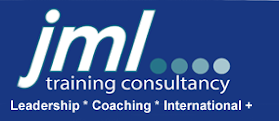
World famous Learning Styles 'guru' Dr Peter Honey certainly inspired and entertained members of the Charity Learning Consortium at its recent meeting, in a thought provoking presentation. Can you force someone to learn, when they don't want to? Should learning always be fun? And is the Learning Styles Questionnaire sufficient to help promote learning? These were just some of the conundrums that Peter Honey tackled.
Even the unwilling can be helped to learn, said Dr Peter Honey - world famous for his Learning Styles Questionnaire - at an entertaining and thought provoking presentation to members of the Charity Learning Consortium (CLC).
Dr Honey used the analogy of a horse to illustrate his point - turning the assumption that 'you can lead a horse to water, but cannot make it drink' on its head. You could, he suggested, make sure the horse was really thirsty, perhaps ensure there were plenty of other horses drinking already to entice the horse to join them, or make the water somehow more attractive to a horse!
"You can't force horses to drink, but you can make it as easy as possible for them to do so," he said. Equally - he pointed out - you can maximise the probability of learning by engineering a successful learning environment.
Dr Honey challenged assumptions in this way several times - perhaps surprisingly stating that "of course the learning style questionnaire isn't sufficient on its own to promote effective learning" - as a learner's motivation, external pressures and their environment are all not taken into account (back to the analogy of the horse).
Another strongly held belief - that learning should be fun - was also challenged: "I've never bought into the idea that every learning experience should be jolly," he said. Don't we in fact learn from mistakes (which can be painful), and could there not be richer learning through adversity, he suggested?
"There is no correlation between the popularity of something, and how much you learn! If it's not so enjoyable you may have to put more effort in, and ultimately learn more as a result." But he recommended using a 'force and support' principal - if you are going to 'enforce' learning - for whatever reason - make sure there is support.
Peter Honey's memorable presentation was just one of the highlights of the CLC's members' meeting last week. At the initial roundtable introductions, one member commented "I come here to learn from everyone else, steal your ideas, go back to work and gain the glory for myself!"
Exchanging ideas is certainly one of the Consortium's strengths. More than 70 charities have joined the Consortium, which provides them all with access to a range of eLearning - including Microsoft Office, Personal Development and Leadership & Management. Initially charities may join because of the cost savings on offer, but they also benefit from networking with others working in L&D in the Third Sector, within an exclusive online group, and at quarterly members' meetings.
The CLC members' meetings are the perfect place to gain valuable feedback on projects, network, and learn together. High profile speakers like Peter Honey and Donald Taylor Chairman of the Learning and Skills Group and the Learning Technologies conference, have recently brought a new dimension to the debate. Workshop-style sessions with Laura Overton - Managing Director of Towards Maturity and winner of this year's Colin Corder award for services to IT training - have also been invaluable sources of inspiration, helping members progress their organisations on their L&D journeys. We wait to hear tales of glory...
More information about the Charity Learning Consortium
Formed in 2001 by six charities looking to share learning resources, the Charity Learning Consortium (CLC) now has more than 70 member organisations and continues to grow from strength to strength. The CLC provides members with a large portfolio of eLearning, offers networking opportunities and a place to discuss best practice in the voluntary sector. Members have access to an online networking tool; shared member resources and eLearning documentation. They may also be invited to attend quarterly member meetings (dependent on subscription level) to discuss developments, take part in free workshops and watch member presentations on their challenges and successes in implementing eLearning. Find out more at www.charitylearning.org
Source: Charity Learning Consortium









